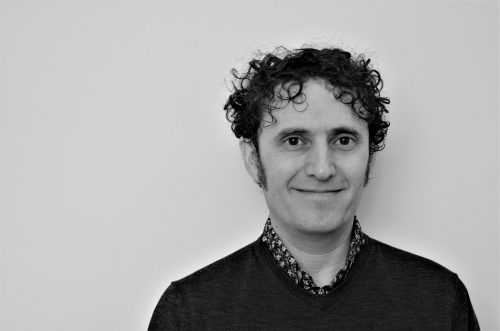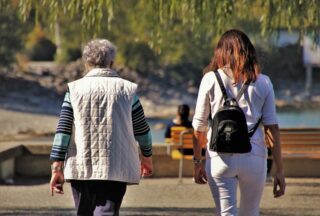Our Community Connector team covers the whole of Wiltshire, working directly with carers in their communities and helping them to access local services and advice.
 Carers Week 2019 is all about ‘Getting Carers Connected’, so we thought it was the perfect time to talk to one of our team members, Julian Pugsley, to find out more about his role and what he does day-to-day.
Carers Week 2019 is all about ‘Getting Carers Connected’, so we thought it was the perfect time to talk to one of our team members, Julian Pugsley, to find out more about his role and what he does day-to-day.
Why I do it
“The Community Connector roles started in April 2018. Prior to that I was the Carer Clinic Worker for Carer Support Wiltshire for four years.
Prior to taking on the Carer Clinic Worker role, I was the Senior Direct Payments and Personal Health Budgets Advisor for Compass Disability Services for six years. I gave advice on employment law, budgeting, bookkeeping and Local Authority funding rules to people who were employing personal assistants to support them with their care needs. My job before that was Outreach Worker for the Supported Living Service in BANES, supporting with adults with learning disabilities to maintain their independence in the community.
The Carer Clinic Worker role appealed to me because I had awareness of how challenging unpaid caring roles could be without adequate support because of my previous work experience. I enjoy working face to face with people so meeting carers in their local GP practice and supporting them to identify areas of need and ways to overcome the challenges being faced was very rewarding.
What I do
There really isn’t such a thing as a typical day in my role. I might be running a carers clinic, supporting carers on the duty telephone line, visiting a carer in their own home, attending a local area Health & Wellbeing board meeting, running a carers support group, giving a talk to staff at a care home – to name but a few things! That is one of the things I really enjoy about the Community Connector role – the sheer variety of things to do.
Incidentally, in September 2018 I reduced my hours to 22.5 per week and I now dedicate two days per week to the business I set up: The Rock Project Chippenham. It’s an after-school music club and I teach children aged seven to eighteen in rock and pop guitar, bass, drums and vocals. The students are putting on their own Rock Show on Sunday 14th July at the Neeld Community and Arts Centre, Chippenham, where they will be performing the songs that they have learned as a band over the course of the year.
What I love most about the role
I think that the thing that I love most about the role is also the thing which I believe is the most valuable service we offer to carers and that is giving carers the space and time to talk.
Carers need the opportunity to offload to someone because this process in itself can be very therapeutic and it can also help carers to think about what it is that they need support with the most or what they would like to change about their caring situation. In my view, being able to do this in a face to face setting, such as at a carers clinic, is doubly effective.
Very often I will meet carers who do not know the first thing about our services.
We have something like 12,500 unpaid carers registered with Carer Support Wiltshire. However, there are approximately 49,000 carers in the county according to the 2011 census, so this is not surprising.
This is why working with key partners, such as the GP practices, to identify previously unknown carers is such a vital aspect of our work. Once carers receive an Initial Assessment from us, we can work out what their most pressing needs are and support them to achieve the outcomes required to improve their health and wellbeing.
Carers may have been struggling with demanding caring roles for years, not knowing that support is available to them from the Local Authority and other providers which can improve their quality of life. For instance, we inform carers of their entitlement to a regular break from their caring role as part of the Care Act 2014. This can make a huge difference to someone’s ability to continue in their caring role.
Making a difference
An example of the above occurred this week with a carer I met following a support work referral for me to assist with the completion of a Carer’s Emergency Card application form.
I visited the carer at home and met the cared for person. The carer had not had a break from their caring role in twelve years. The carer is soon to be 89 and the cared for person is 91.
I have now requested a full Carer’s Assessment for the carer from Wiltshire Council. This is likely to result in a funded service to engage a personal assistant to sit with the cared for person on a weekly basis to enable the carer to get a well-deserved break and a chance to recharge their batteries.
The carer is hoping to attend the next Carer Support Wiltshire support group meeting at The Bear Hotel in Devizes on Tuesday 18th June at 10.30am to get the opportunity to hear a talk, have a cup of tea or coffee and a slice of cake and meet with other carers and receive some valuable peer support.”




